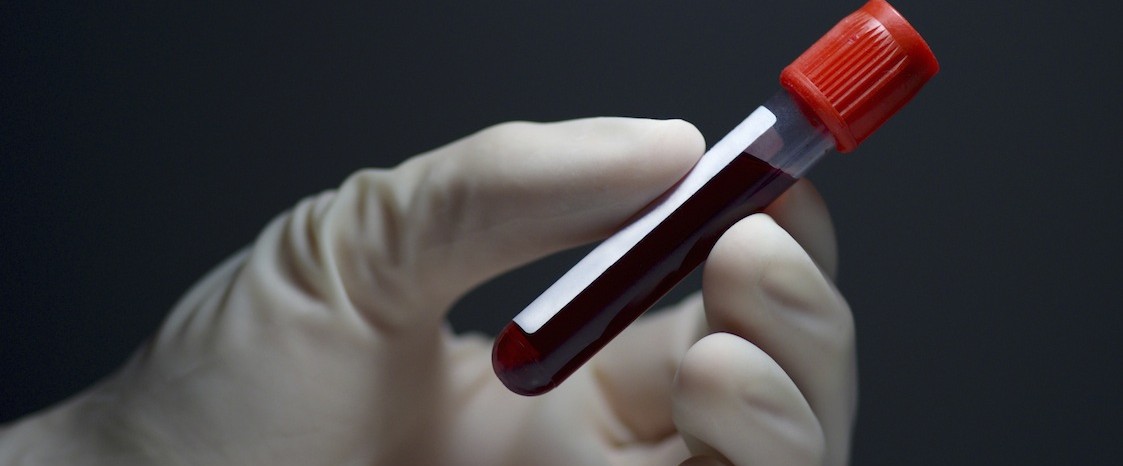Could a simple blood test determine who is at a higher risk for suicide?
Researchers from Johns Hopkins University say they have discovered a genetic marker linked to the human stress response that could predict a person’s risk of attempting suicide. The study was published in the July 30 edition of the American Journal of Psychiatry.
“We have found a gene that we think could be really important for consistently identifying a range of behaviors from suicidal thoughts, to attempts, to completions,” said lead researcher Zachary Kaminsky, assistant professor of psychiatry and behavioral sciences at the Johns Hopkins University School of Medicine in Baltimore.
“We need to study this in a larger sample, but we believe that we might be able to monitor the blood to identify those at risk of suicide,” Kaminsky said.
In a postmortem analysis of 150 brain samples of healthy people and people who had died by suicide, Kaminsky and his colleagues found that chemical changes in a gene called SKA2, which plays a significant role in the human body’s reaction to everyday stress, were more common among people who had died by suicide. Because SKA2 shuts down the stress response, people with the abnormal version of the gene continue to experience the flood of hormones produced by their bodies in response to stress long after the difficult situation has passed.
“It’s good to be stressed if you’re crossing the street,” Kaminsky told CNN. “You need to be ramped up. You need to be focused. But when you’re safely across the other side, you don’t want to stay in that mode.”
The test was more than 80 percent accurate, the researchers reported.
Research Limited Due to Stigma
According to the American Foundation for Suicide Prevention, we have a long way to go in understanding the bewildering complexities involved in suicide — including physical illness and mental health challenges. Depression, which is drawing attention with news that the late actor and comedian Robin Williams was fighting it, is considered a leading factor in suicide. But despite it being the 10th leading cause of death in the U.S., according to the federal Centers for Disease Control and Prevention, research on suicide has been lacking.
“What we know about the causes of suicide lags far behind our knowledge of many other life-threatening illnesses and conditions,” the organization’s website explains. “In part, this is because the stigma surrounding suicide has limited society’s investment in suicide research.”
It has long been recognized that there is a complex interaction between the psychological, social and genetic variables that govern whether an individual will take his or her own life, said Dr. David Sack, a psychiatrist and CEO of the mental health treatment centers of Elements Behavioral Health. Other public health officials also cite increasing age, chronic, serious or terminal medical illness, living alone and a history of psychiatric disorder or substance abuse as factors that increase a person’s suicide risk.
“Until recently, there has been little progress on the biological side of assessing suicide risk,” Dr. Sack said. “Increased serum cortisol levels and decreased brain serotonin levels are two factors that have been correlated with increased risk. Now for the first time, researchers have identified a genetic marker for suicide, which, if confirmed, could help clinicians identify those at exceptionally high risk to take their lives.”
The CDC reported that in 2011, the most current data available, 39,518 Americans died by suicide. Despite the advent of anti-depressant medications and their ever-wider use, there has been no corresponding reduction in suicide rates. Hence, the attention to the research potentially leading to a blood test screening for suicide risk.
“This test could potentially save thousands of lives,” Dr. Sack said, “when combined with a multimodal treatment approach.”
To help understand the latest finding, it helps to know a bit about recent research. From the American Foundation for Suicide Prevention:
“The brain systems that have been most frequently studied as factors in suicide are the serotonergic system, adrenergic system and the Hypothalamic-Pituitary Axis (HPA), which relate to mood, thinking and stress response, respectively. This research has also identified neurobiological impairments related to depression and other underlying mental disorders, as well as to acute or prolonged stressors.
“One of the key challenges of neurobiological studies is determining the abnormalities in genes, brain structures or brain function that differentiate depressed people who died by suicide from depressed people who died by other causes.”
Prevention Tool
With larger-scale studies, Kaminsky and his colleagues hope to further confirm their results and move closer to preventing suicide. For example, the findings might be used to restrict lethal means or methods among those at risk, or to make decisions regarding the intensity of intervention approaches.
A blood test to predict suicide risk could also be used in the military, Kaminsky said, with those at highest risk being more closely monitored when they return from deployment.
In 2011, the CDC reported, someone in the U.S. died by suicide every 13.3 minutes. Two military veterans take their lives every day.









